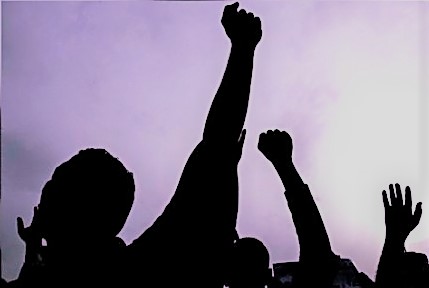In Peru's Andes, scars of protest deaths cut deep as families seek justice
In a small bedroom of a tin-roofed home in Peru's southern city of Juliaca, Asunta Jumpiri holds the torn red and black sweatshirt of her 15-year-old son, whose dark eyes stare back at her from half a dozen framed photos around the room. Her son Brayan was wearing it when he was shot in the back of the head on Jan. 9, the deadliest day of violence Peru has seen in over twenty years that has cut a deep scar in the country's Andean south.

- Country:
- Peru
In a small bedroom of a tin-roofed home in Peru's southern city of Juliaca, Asunta Jumpiri holds the torn red and black sweatshirt of her 15-year-old son, whose dark eyes stare back at her from half a dozen framed photos around the room.
Her son Brayan was wearing it when he was shot in the back of the head on Jan. 9, the deadliest day of violence Peru has seen in over twenty years that has cut a deep scar in the country's Andean south. Brayan had come into town with his mother, 9-year-old younger brother and pregnant older sister to visit the doctor. Brayan then asked to go to an Internet cafe and they arranged to meet up later at a nearby crossroads, his mother recounted.
Instead, Brayan was caught up in the protests. Security camera footage obtained by Reuters shows the moment he was shot, identifiable by his distinctive red-black sweatshirt. Brayan died of his wounds three days later on Jan. 12 in hospital after surgeons tried to clear a blockage in the brain. His autopsy showed he had a fractured skull and died from head trauma caused by a firearm projectile.
"Do you think we're going to forgive?" Brayan's mother, Jumpiri, told Reuters at her home. "No, we're not going to forgive. I'm willing to fight. I'm willing to die. For Peru I'm willing to fight. I'm not afraid now that my son is dead." Peru, home to some 35 million people, huge copper reserves and the ancient Incan city Machu Picchu, is grappling to restore stability after months of anti-government protests and clashes that have left 49 people dead, with roads blockaded around the country and calls for the president and Congress to step down.
Growing calls for justice pose a hurdle to restoring peace, broken by the dramatic Dec. 7 ouster of leftist President Pedro Castillo. Since the first protest death in mid-December, prosecutors have opened at least 11 investigations into the deaths of some of the people killed during clashes with security forces.
The prosecutor's office in Juliaca said they were not authorized to discuss the investigations and police declined to comment. There has been a lull in clashes since their peak but anger is simmering.
Zarai Toledo, a postdoctoral fellow at the Center for Inter-American Policy and Research (CIPR) who has studied social conflicts in Peru, says the current wave of protests is unlike any she's seen since the country's return to democracy, and the lack of perceived accountability is dangerous for democracy. "The country is super unpredictable, but this level of repression can help us argue that those that have been the victims of repression will not stop," Toledo said.
SCARS OF VIOLENCE Brayan was one of 19 people killed in Juliaca. Scars of the violence are scattered around town, etched into the streets and buildings: charred shells of cars, burning tires and broken glass litter the roads. Anti-government banners hang from overpasses calling for the president to step down.
Family members of the victims have joined together, getting legal support and forming an association to spur authorities to action. They’re coordinating with families and organizations around the country representing those killed during the protests to file a lawsuit against President Dina Boluarte and other members of the government. Boluarte has said there will be no "impunity" when it comes to protest deaths, but families say they've seen little progress.
Rosa Luque criticized the authorities for not doing enough to collect evidence after her 18-year-old son, Heliot Luque, was shot and killed at around 5.30pm on Jan. 9. He died from a single gunshot to the chest, his autopsy shows. "Aren't they supposed to be the authorities and isn't it their duty to do that?" Luque said.
Hundreds of protesters have been arrested, with several sentenced to jail, as the government has taken a tough line on protest violence, including threatening stiff jail terms for people supporting what it calls "terrorist" acts online. "They don't immediately investigate the deaths, but the (protesters) who do damage or lead things, they're already in prison. Our dead aren't worth anything," said Dionisio Aroquipa, whose 17-year old daughter, Jhamlith Nataly, died on Jan 9.
Investigators found a 9 millimeter (mm) bullet lodged in her body according to an autopsy report seen by Reuters. "We're asking for justice, for an in-depth investigation. I want to know who it was that pulled the trigger," Aroquipa said.
(This story has not been edited by Devdiscourse staff and is auto-generated from a syndicated feed.)










